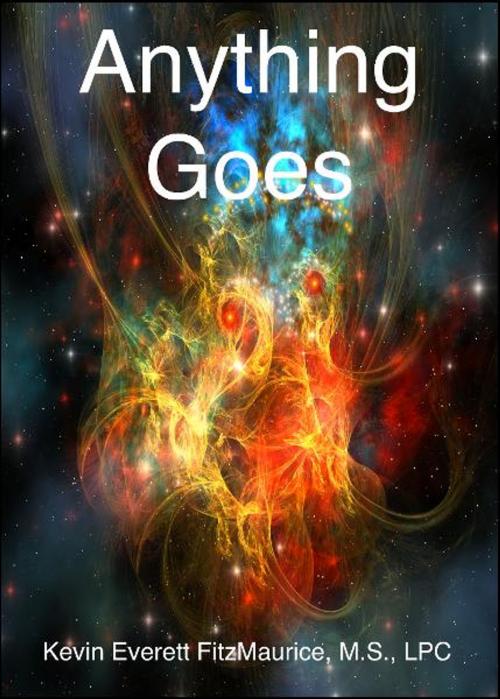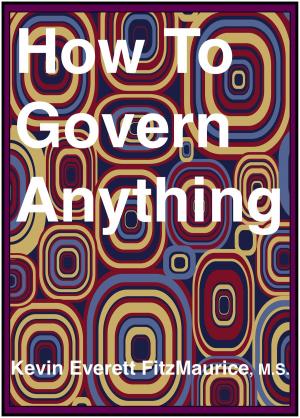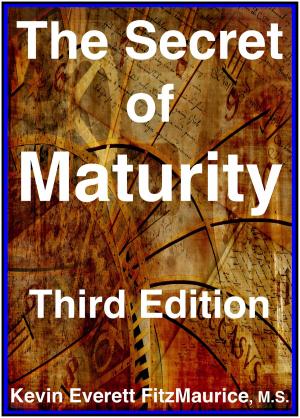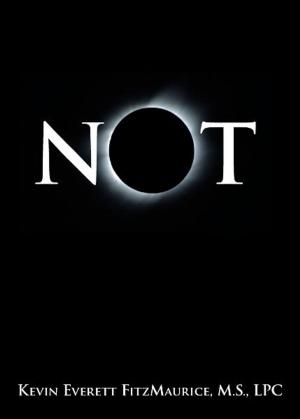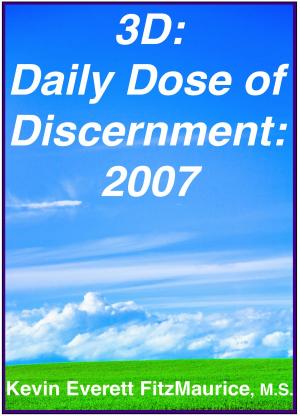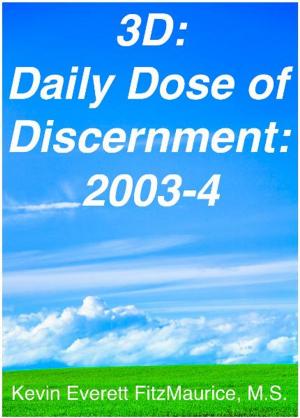Anything Goes
Nonfiction, Religion & Spirituality, Philosophy, Eastern, Mind & Body, Inspiration & Meditation, Spirituality| Author: | Kevin Everett FitzMaurice | ISBN: | 9781878693204 |
| Publisher: | FitzMaurice Publishers | Publication: | June 29, 2011 |
| Imprint: | Language: | English |
| Author: | Kevin Everett FitzMaurice |
| ISBN: | 9781878693204 |
| Publisher: | FitzMaurice Publishers |
| Publication: | June 29, 2011 |
| Imprint: | |
| Language: | English |
This book is a compilation of sayings useful to understanding Eastern thought and General Semantics. The agreement between General Semantics and Eastern philosophy is profound, illuminating, and deepens the understanding of both. For instance, the expressions, The description is not the described, and, The thought is not the thing, are found in both Eastern philosophy and General Semantics. Both systems arrive at reality as nonverbal, silent, and beyond comprehension with thought. This despite the fact that one is spiritual and one is atheistic. Two entirely different approaches arriving at the same ultimate conclusions is exciting and enlightening. You will find the sayings herein amusing, helpful, interesting, and thought provoking. Many of the sayings are like Zen koans; if you sit with them, they reveal the other side free of words. Many of the sayings are open to multiple interpretations and meanings. New meanings will arrive on different journeys through the book. The same insight shared different ways helps you not to miss deeper felt experiences for simple surface meanings. It often happens that a slight change in wording allows someone to drop their mind long enough to hear something fresh. One persons, thats obvious, is another persons ah-ha moment. Let the sayings pass that dont open to you now. Focus on the sayings that bring stillness. Listen beyond the words. Feel, rather than think, the sayings through. Sense, rather than think, the music behind the words. If you are not familiar with Eastern thought, the word nothing can have a profoundly positive meaning. For instance, nothing can mean the unknowable creative source of everything. Eastern philosophy has two major divisions; one that has gods, and one that has a void instead of gods. The word nothing in this book often refers to this invisible, unfathomable, and all-powerful Eastern void. The word void is also to be considered positive in the Eastern philosophy sense. Perhaps, because of the negative connotations of the words void or nothing, the Western mind would do better to think of positive pure-energy in place of void and nothing. The word nothing in this book can have many meanings other than zero: emptiness, empty space, formless energy, God, invisible power, no thing, no things as referents, no thoughts, no thoughts as referents, no thoughts being what they only represent, not thinging, self as space, the creative source, the ineffable, the life force, the nature of being, the positive Eastern void, the way of life. Try considering the word nothing as a shortened form of the two words not thinging! The words everything and anything in this book mainly refer to: conceptualizing, concretizing, ideas, images, labels, making thoughts into reality, names, objectifying, reification, some thought, some thought-thing, terms, thingifying, thought as delusion, thought as illusion, thought pretending to be the real, thoughts as what they represent, thought-things, treating thoughts as things. Try considering the word everything as a shortened form of the two words every thought-thing! Try considering the word anything as a shortened form of the two words any thought-thing! Two reading suggestions. One, you will understand more if you read nothing as two words no thing or not thing, everything as two words every thing or every thought-thing, and anything as two words any thing or any thought-thing. Two, always consider the word nothing to be implied even if it is not stated. Nothing is the constant counterpoint to everything and anything. The words nothing, everything, and anything have lost some of their original meaning through repetition and usage. Simply, you will find that nothing and everything or anything often have opposite or contrasting meanings in the sayings. More could be said, but less is often more helpful. Find what you will. Take what you want and leave the rest to leaven. If you are interested in quotations, then please visit the authors website. There you will find lists of quotations organized by topic. If you find quotations intriguing, but not fulfilling, then please examine some of the authors other works listed at the end of the book.
This book is a compilation of sayings useful to understanding Eastern thought and General Semantics. The agreement between General Semantics and Eastern philosophy is profound, illuminating, and deepens the understanding of both. For instance, the expressions, The description is not the described, and, The thought is not the thing, are found in both Eastern philosophy and General Semantics. Both systems arrive at reality as nonverbal, silent, and beyond comprehension with thought. This despite the fact that one is spiritual and one is atheistic. Two entirely different approaches arriving at the same ultimate conclusions is exciting and enlightening. You will find the sayings herein amusing, helpful, interesting, and thought provoking. Many of the sayings are like Zen koans; if you sit with them, they reveal the other side free of words. Many of the sayings are open to multiple interpretations and meanings. New meanings will arrive on different journeys through the book. The same insight shared different ways helps you not to miss deeper felt experiences for simple surface meanings. It often happens that a slight change in wording allows someone to drop their mind long enough to hear something fresh. One persons, thats obvious, is another persons ah-ha moment. Let the sayings pass that dont open to you now. Focus on the sayings that bring stillness. Listen beyond the words. Feel, rather than think, the sayings through. Sense, rather than think, the music behind the words. If you are not familiar with Eastern thought, the word nothing can have a profoundly positive meaning. For instance, nothing can mean the unknowable creative source of everything. Eastern philosophy has two major divisions; one that has gods, and one that has a void instead of gods. The word nothing in this book often refers to this invisible, unfathomable, and all-powerful Eastern void. The word void is also to be considered positive in the Eastern philosophy sense. Perhaps, because of the negative connotations of the words void or nothing, the Western mind would do better to think of positive pure-energy in place of void and nothing. The word nothing in this book can have many meanings other than zero: emptiness, empty space, formless energy, God, invisible power, no thing, no things as referents, no thoughts, no thoughts as referents, no thoughts being what they only represent, not thinging, self as space, the creative source, the ineffable, the life force, the nature of being, the positive Eastern void, the way of life. Try considering the word nothing as a shortened form of the two words not thinging! The words everything and anything in this book mainly refer to: conceptualizing, concretizing, ideas, images, labels, making thoughts into reality, names, objectifying, reification, some thought, some thought-thing, terms, thingifying, thought as delusion, thought as illusion, thought pretending to be the real, thoughts as what they represent, thought-things, treating thoughts as things. Try considering the word everything as a shortened form of the two words every thought-thing! Try considering the word anything as a shortened form of the two words any thought-thing! Two reading suggestions. One, you will understand more if you read nothing as two words no thing or not thing, everything as two words every thing or every thought-thing, and anything as two words any thing or any thought-thing. Two, always consider the word nothing to be implied even if it is not stated. Nothing is the constant counterpoint to everything and anything. The words nothing, everything, and anything have lost some of their original meaning through repetition and usage. Simply, you will find that nothing and everything or anything often have opposite or contrasting meanings in the sayings. More could be said, but less is often more helpful. Find what you will. Take what you want and leave the rest to leaven. If you are interested in quotations, then please visit the authors website. There you will find lists of quotations organized by topic. If you find quotations intriguing, but not fulfilling, then please examine some of the authors other works listed at the end of the book.
